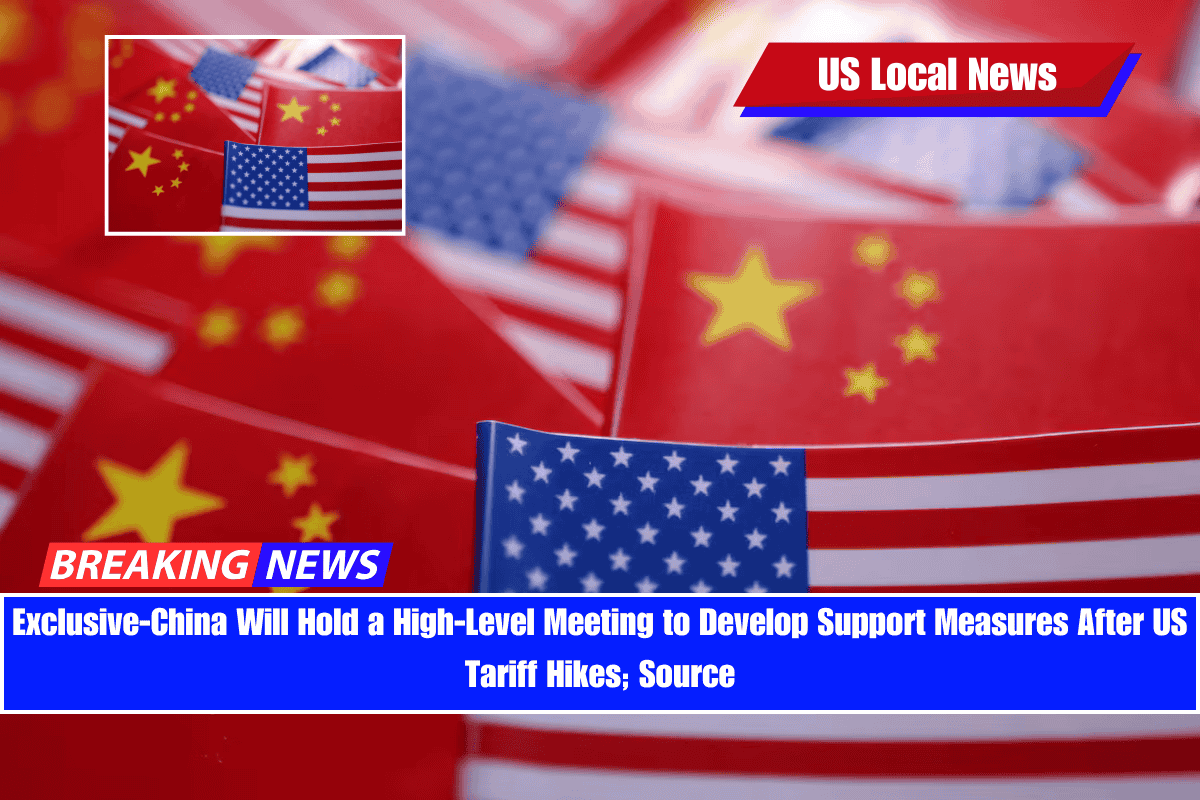China’s top leaders are planning a high-level meeting as early as Wednesday to decide how to respond to the escalating trade war with the United States, according to sources familiar with the situation.
The talks come after U.S. President Donald Trump increased tariffs on Chinese goods to 104%, deepening tensions between the world’s two largest economies. Economists warn the growing trade battle could slow down China’s growth, hurt jobs, and make its economic problems worse.
What Is the Meeting About?
The meeting is expected to include senior officials from key departments, including:
- The State Council (Cabinet)
- The People’s Bank of China (Central Bank)
- The Finance Ministry
- Commerce Ministry
- China Securities Regulatory Commission (CSRC)
- National Financial Regulatory Administration (NFRA)
These officials are expected to discuss ways to boost domestic spending, support financial markets, and stabilize investor confidence.
One possible move under discussion is increasing export tax rebates to help local businesses affected by the tariffs.
Why This Meeting Matters
This will be the first major economic strategy session known to the public since the U.S. hiked tariffs on China. The goal is to limit the damage caused by the trade war and restore confidence in China’s slowing economy.
China is already facing challenges, including:
- A deepening property crisis
- High local government debt
- Weak consumer confidence
Now, Trump’s tariffs add another layer of pressure.
China’s Struggles with Global Demand
Though China posted a $1 trillion trade surplus last year, analysts say monetary or fiscal stimulus won’t be enough to shield it from the drop in global demand caused by the tariffs.
The best way forward, experts say, is to increase household spending. China’s consumer spending is currently 20% lower than the global average. However, despite promises from Beijing, few major steps have been taken to boost domestic demand—apart from a small consumer subsidy program, which experts believe won’t have a big impact.
Some actions discussed in this week’s meeting could be announced in the coming weeks, sources say.
China’s Official Response
China’s Commerce Ministry has stated that Beijing does not want a trade war but will fight back if necessary.
Premier Li Qiang reassured the public this week that China is prepared for external pressures and that current policies account for these uncertainties.
Meanwhile, state media is expected to share details of the upcoming meeting to help calm financial markets and show that the government is taking steps to protect the economy.
Market Reaction
Chinese markets reacted quickly. After Trump’s announcement of a new 34% tariff on Chinese goods, stocks dropped sharply. The:
- CSI300 Index has lost over 5% since April 2
- Hang Seng Index in Hong Kong has dropped 13%
However, on Wednesday, Chinese stocks bounced back slightly due to investor interest in domestic tech companies and promises of government support for local markets.











Leave a Reply